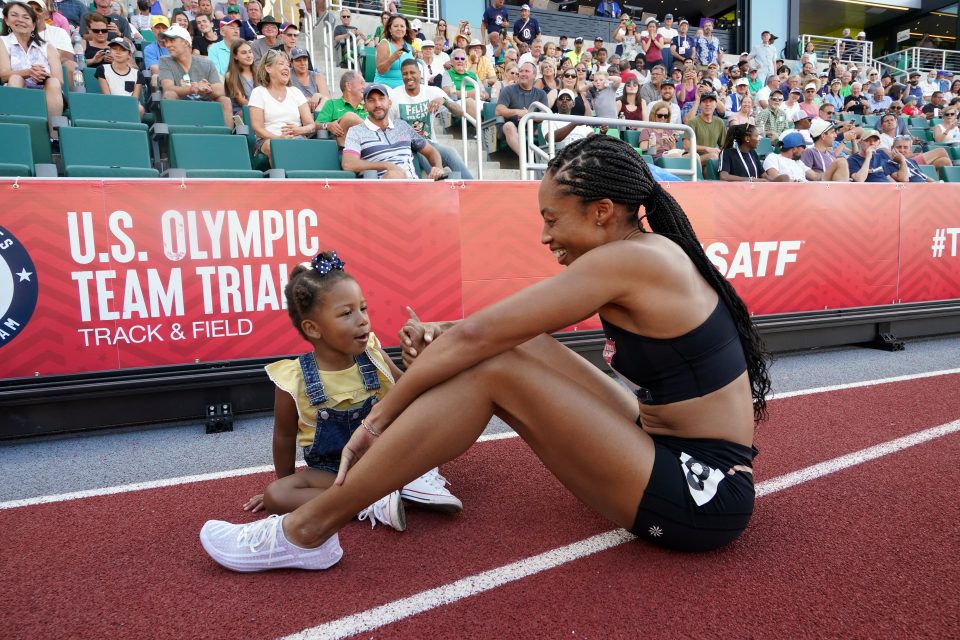Allyson Felix has qualified for her fifth Olympic Games, where she will take aim at becoming the most decorated track and field athlete in Olympic history.
Felix qualified for next month’s Olympics in Tokyo by finishing second in the 400-meter finals on Sunday at the Olympic trials, with a time of 50.02 seconds. Felix, who started on the outside in lane eight, was in fourth place rounding the curve into the final homestretch, but caught two competitors to book her plane ticket to Tokyo. The crowd at the University of Oregon’s Hayward Field gave her a standing ovation.
In Tokyo she will race the 400 meters and could be on both relay teams for the women’s 4×400 and the mixed gender 4×400, a new event. She is also scheduled to run in the 200 meters at the trials, which begin qualifying on Thursday.
An improbable four medals in Tokyo would give her 13 career Olympic medals, the most ever for a track and field athlete, surpassing the 12 held by Paavo Nurmi, the “Flying Finn” who won numerous distance medals in the 1920s. If she wins two or more, she will surpass Carl Lewis as the most decorated American track and field athlete.
Joining Felix in the 400 meters in Tokyo will be Quanera Hayes and Wadeline Jonathas. Hayes has run the sixth-fastest time outdoors this season, while Jonathas has the eighth-fastest time, and took fourth place at the 2019 world championships.
Felix, 35, first attended the Olympics as an 18-year-old in 2004 in Athens, where she won a silver medal in the 200, the event she specialized in throughout her career. But she took silver in the 400 five years ago in Rio, and has been on three consecutive gold medal-winning 4×400 meter relay teams.
The last few years have brought a number of challenges off the track for Felix. Her daughter, Camryn, who has made a number of appearances at the trials, was born via an emergency C-section at 32 weeks in 2018. Camryn, or Cammy as Felix calls her, was quick to join Felix on the track after she qualified for Tokyo.
Felix later detailed how her sponsor, Nike, did not support her during this period and would not guarantee in future contracts that she “wouldn’t be punished if I didn’t perform at my best in the months surrounding childbirth,” as she wrote in The New York Times. Felix is now sponsored by Athleta.
This article originally appeared in The New York Times.


